Annual Review



 A summary of the impact of the Lincolnshire Wildlife Trust in 2022 - 2023
A summary of the impact of the Lincolnshire Wildlife Trust in 2022 - 2023




 A summary of the impact of the Lincolnshire Wildlife Trust in 2022 - 2023
A summary of the impact of the Lincolnshire Wildlife Trust in 2022 - 2023
Although COVID was still prevalent, most restrictions were lifted during this year, and life started returning to normal. We were able to celebrate this by holding a social get-together for all staff and Trustees at Doddington Hall in September, the first time we had all managed to meet up since 2019. It was a chance to catch up with old colleagues and meet new members of staff who had started working for the Trust during the epidemic. Area Groups and Wildlife Watch groups were also able to start meeting again and we were able to hold the GLNP conference and Conservation Forum in person.
This summer was the hottest in the UK since records began. Lincolnshire broke the national record, with RAF Coningsby recording a temperature of 40.3oC on 19 July – the first time 40oC had been exceeded in the UK. A number of wild fires broke out across the county, although nothing compared to those suffered in other parts of Europe and the rest of the world. Thankfully, none of our nature reserves were affected.
It was a stark reminder, if one was needed, about the impact of climate change. As well as campaigning for changes to limit further carbon dioxide emissions, it highlighted the need to focus our attention on adaptation if our nature reserves are to withstand the effects that are already with us.
Despite these obvious threats politicians appear to show little sign of stepping up to the challenge of climate
change and the loss of biodiversity. There were signs of a weakening of environmental protection laws, planning ‘reforms’ to fast-track developments and U-turning on environmental payments to farmers. Against the backdrop of a tumultuous year in politics, the Retained EU Law Bill was introduced into Parliament in November 2022. The effect of the Bill, if made law, would have been to remove hundreds of environmental laws, including keystone laws like the Habitats Regulations, the Water Framework Directive Regulations, the Marine Strategy Regulations and rules to govern chemicals and pesticide use, and set limits on air pollution.
Over 80 conservation organisations come together to oppose the Bill, of which The Wildlife Trusts were among the most prominent. Many of our members contacted their local MPs and signed petitions. After months of protest, the Government did significantly scale back on the final form of the Act, but fundamental issues remain as hundreds of laws are still set to be binned.
As a result of the Act, it is now easier for present and future governments to weaken or remove legal protection of species, habitats, and the environment with limited consultation and without appropriate parliamentary scrutiny.
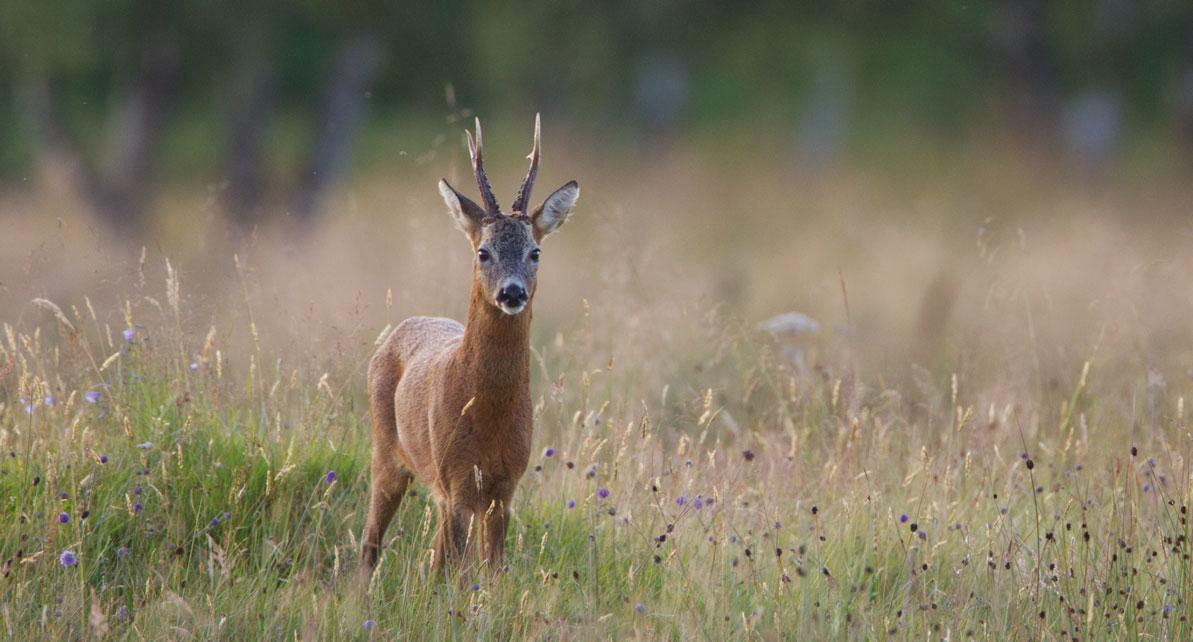
We need to ensure that the environment is on the agenda of all the political parties, and in the minds of the voters, as we head towards an election in 2024.
Compared to our income of £5.9m in 2021/21, our reported income of £3.3m this year looks disappointing. However, last year was exceptional for a number of reasons, which were highlighted at the time. These included funding for two significant projects which had to be reported, in full, up front. In subsequent years, as work on the projects began, this would inevitably show a fall in revenue and increase in expenditure.
Legacy income fell this year, compared to previous years. This has highlighted how vital legacies are to the continued work of the Trust. We are grateful to all those who have already remembered us in their wills and our thoughts are with the family and friends of those whose legacies we have received this year.
With pressures on our traditional means of funding, it is vital that we continue to look for new and diverse sources of income. It is becoming increasingly clear that we can no longer rely on public money to finance our activities, and that private sources will need to play an increasingly greater part. One emerging area is that of Green Financing and, for this reason, it is particularly exciting to see the Trust taking a leading role in establishing a market for biodiversity and water credits in Greater Lincolnshire.
However, despite all these challenges the Trust achieved much during the year. The following Review highlights our many achievements against the three strategic goals of Nature in Recovery,
Our vision is for a thriving natural world, with our wildlife and habitats playing a valued role in addressing the climate and ecological emergencies, and people inspired and empowered to take action for nature.COVER PHOTO, SPARROWHAWK: GEOFF TRINDER, LITTLE TERN: MARGARET HOLLAND
Our strategic goals are:

Nature in Lincolnshire is in recovery with abundant, diverse wildlife and natural processes creating wilder land and seascapes where people and nature thrive.
1

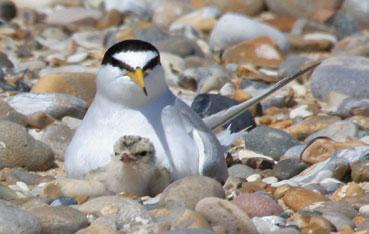
People in Lincolnshire are taking action for nature and the climate, resulting in better decision making for the environment at both the local level and national level.
2
Our nature reserves continue to form the core of our efforts to protect and recover nature across the county and the care and maintenance of our estate remains one of our biggest areas of work every year.
seal pups were born at Donna Nook and at Saltfleetby there was an incredible 50% increase in natterjack toad spawn.
3
Nature in Lincolnshire is playing a central and valued role in helping to address local and global problems.
It was a challenging year weather-wise, with a long summer drought and record high temperatures. Whilst the early flowering plants, such as green-winged orchids, did well, the long hot summer burnt off heather and grass and left many species struggling to cope. Insect feeding warblers faired well though – the heat and lack of rain meant that they could feed and breed with very little interruptions from the weather.
Taking on more land has always been a key plank of our strategy and whilst high land prices mean acquisition is not as easy as it was, we still managed to secure two small parcels of land during the year. At Sow Dale, a further extension of 12.9 acres was completed in April 2023, alongside continued habitat creation and restoration including naturalising the river channels. In addition, a small parcel of land opposite our Scotton Common nature reserve was gifted to the Trust and will now be known as Bailey’s Field.
People Taking Action and Naturebased Solutions. A number of new staff have been recruited to work in projects such as the Fens East Peat Partnership, Nextdoor Nature and Wilder Humber.
At the AGM in October, Julian Purvis stepped down as Honorary Treasurer, after five years in the role, and nine years as a member of the Board. On behalf of the Board, the staff and the members, I would like to thank him for devoting so much of his time and energy to the Trust during those years. He was replaced as Honorary Treasurer, by Joanne Woolley, a new member of the Board.
Looking forward, we continue to celebrate the Trust’s 75th anniversary. A Wilder Lincolnshire Festival is to be held at Doddington Hall in September where we will be joined by many of the communities and other organisations that we have worked with across Lincolnshire.
We are also hosting The Wildlife Trusts’ ‘Town Hall Live’ at Gibraltar Point in December. These events are a chance for staff and Trustees from across the UK to come together and share their amazing work.

Our habitat work paid dividends at places like Anderby Creek where a new control structure allowed us to hold much more water on site than in previous years. This year, 17 species of wading bird were recorded when previously it had been just five. Similarly, at Kirkby Moor, work to slow the flow of water across the site created areas of damp heath and wet woodland where reptile species could retreat from the otherwise dry and drought-stricken heath. Such work is going to be evermore important if we are to allow wildlife to respond to a changing climate.
The dry weather allowed access to areas of Whisby Nature Park that are usually far too wet, resulting in the discovery of a new colony of greenflowered helleborine. With an estimated 1,500 plants, it is believed that this makes the reserve the most important site for this species in the whole of the UK.
The Trust’s longest running species protection programme is at Gibraltar Point, where sustained effort led to 11 little tern chicks fledging. The colonisation of cranes in the county continued where on top of another year of successful breeding, a roost of 20 birds established at Willow Tree Fen over the winter. Elsewhere on the coast, 2,209 grey
Conversely, on occasion we also take the decision to relinquish land and the Trust’s lease of Greetwell Hollow near Lincoln ended and was not renewed. The original nature reserve had been subsumed into a larger area of former quarry land which is all now facing considerable development pressure. The nature reserve is protected as Open Access land and we feel that its future would be best considered within wider discussions on the provision of green space as part of any development of the area. The Trust would like to influence this debate without any real or perceived conflicts of interest and as such it was felt that we should withdraw from managing the site.
The Trust has fifteen environmental stewardship agreements, covering 43 nature reserves. These agreements with Government, in return for nature friendly land management, continue to deliver positive results. We still await a definitive replacement scheme for environmentally friendly farming but in the meantime, seven of our expired agreements which had been rolling over on an annual basis were converted to new 5 years agreements and our “Coast and Meadows” Countryside Stewardship agreement was also renewed for a further five years. These agreements come with a significant amount of compliance but do deliver significant income to allow the Trust to better manage our reserves. The reporting involved shows the considerable effort, recording and self-inspection that are
Anita Quigley, Chair Lincolnshire Wildlife Trust Eleven little terns fledged at Gibraltar Pointapplied to the nature reserves. Once again we are therefore hugely indebted to our wonderful staff, volunteers and contractors for all the work that they do to keep our reserves in good ecological condition.
Our coastal and marine environment is a major part of what makes Lincolnshire special and we were delighted that during the year, the Board of Natural England formally approved the establishment of a ‘Super’ National Nature Reserve (NNR) covering 30km of Lincolnshire Coast from Cleethorpes to Mablethorpe. This was based on work originally proposed by the Trust and includes our nature reserves and land owned and managed by a wide range of organisations.
The UK government announced in April of 2022 the ban of bottom trawling from four offshore Marine Protected Areas including two off the coast of Lincolnshire, Dogger Bank Special Area of Conservation (SAC) and Inner Dowsing, Race Bank & North Ridge Special Protection Area (SPA). The byelaws came into force last summer under new powers set out within the Fisheries Act 2020, halting one of the most destructive fishing practices in the North Sea.



Discussions have taken place with East Lindsey District Council and local businesses over land at Seacroft that would connect Skegness to Gibraltar Point and The Wash. We will update further if discussions reach a positive conclusion. A bluefin tuna that washed up on the beach at Gibraltar Point was a positive indicator of species recovery in the North Sea but despite the Trust campaigning over many years, the Government decided not to designate the important Inner Silver Pit South as a Highly Protected Marine Area.
Our teams were busy undertaking various surveys of land, either for businesses, farmers and community groups, and management advice was provided to help make improvements for nature. This included helping inform the development of various rewilding sites including Wilder Doddington
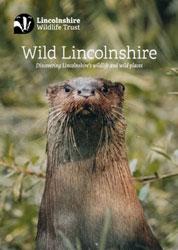
and Boothby Wildlands - where the Trust also provided green hay from local Roadside Nature Reserves that we manage on behalf of Lincolnshire County Council. This will help to establish new areas of species rich grassland as nature is allowed to flourish on the estate.
Our peat soils in the county are increasingly being recognised as being vital for both storing existing carbon and locking further carbon in the future. During the year, work was therefore undertaken in the Fens and the Humberhead Levels to assess the condition of peat on various nature reserves and farmed areas. This was funded through the Nature for Climate Peatland Discovery Grant Scheme and will allow us to target future protection and restoration work in both areas.
Working with Yorkshire Wildlife Trust, and around forty partner organisations, we delivered the final report for the Humber Endangered Landscape Programme Planning Grant in the previous financial year. This identified over 50 projects to recover nature on the Humber and the report was immediately picked up by the renewable energy company, Ørsted, who agreed to fund a restoration pilot on the Humber Estuary for native oysters, saltmarsh, sand dunes and seagrass. Both Trusts recruited specialists in species, habitats and data to enable the baseline surveys and consents to get underway.
The Greater Lincolnshire Nature Partnership (GLNP), hosted by the Lincolnshire Wildlife Trust has continued to represent nature in their policy working in planning, tourism, health and wellbeing and agriculture. Through the planning policy work the GLNP coordinated responses from Lincolnshire Wildlife Trust, Environment Agency and Natural England for the Central Lincs Local Plan, which was adopted in April 2023. This is a great example of partnership working across the environmental sector to input and make positive changes for nature in the local planning system. The GLNP also house the Lincolnshire Environmental Records Centre, which currently holds over 12 million records and works on a variety of projects, currently including the Local Nature Recovery Strategy, Operation Water Vole and updating the county’s Ancient Woodland Inventory.
Overthe course of the year, we worked to engage and empower people of all identities, cultures, backgrounds and abilities – supporting them to value, enjoy, speak up and take action for wildlife. We will listen to our supporters, connect people together and enable and empower them to effect real change, so that we can drive better decision making for nature across the political and corporate sphere, at both the local and national level.
One of the most direct ways that we empower people to act on nature’s behalf is though volunteering with the Trust. Volunteers are involved at every level and in every aspect of our work – from membership of the Board of Trustees, running Area Groups, helping to manage our nature reserves, Wayside Wardens, Watch Leaders, helping at visitor centres and running events, administration and much more. The Trust is always looking for new volunteers and would be delighted to hear from anyone who would like to get involved.
Many individuals and groups got hands on for nature for this year. One of the more unusual ways was through Plogging – a novel version of litter picking combined with jogging. Vivek Gurav visited Lincoln during his city tour of the UK and the Trust was delighted to join in his plogging efforts. He had already covered over 500 miles on 150 plogging missions and been joined by volunteers from an impressive 18 different countries.
The new Nextdoor Nature project supported by the National Lottery Heritage Fund got off to a great start. With the aim of bringing communities together to rewild their neighbourhoods, the project will give people the skills, tools and opportunity to take action for nature. The focus
areas are initially Boston, Cleethorpes, Gainsborough, Grimsby, Mablethorpe, Skegness and South Holland. The project is working with a wide range of organisations and communities that may not have engaged with the Trust otherwise. A tool has been devised that enables us to work with groups to design nature spaces that crucially, they have ownership of and the backing of their local community. This leads to the groups managing and maintaining their own spaces in to the future.
Over the course of the year, we worked with a day centre in Boston for adults with additional learning needs; a community in South Holland who are transforming an old playing field into a space for people and nature; a social enterprise in Grimsby looking to develop a community growing space; a health centre in Mablethorpe developing a wildlife garden for patients and a group who are hoping to create a community country park in Gainsborough. Early indications are encouraging with over 350 people already engaged.
Education and events form the backbone of our work to engage people, especially on our reserves. Visits from schools, colleges and universities to the main education centres at Gibraltar Point, Far Ings and Whisby Nature Park have recovered after the interruption of the pandemic with over 3,100 school pupils and nearly 700 university students participating in learning on site. We have a range of programmes available with an emphasis on experience, environments, wildlife and planet.
Area Groups and Wildlife Watch Groups are run across the county by volunteers and they continued to put on a very full and active programme on a wide range of subjects. In total, nearly 6,000 people attended events ranging from pond dipping to art workshops and working with the Rotary Club of Lincoln Colonia to put on a highly successful conference about pollinators. And it is not just the events programme which is diverse – a wide range of people attend. The Trust has therefore put in place a programme of sensory strolls,
We joined plogger Vivek Gurav in Lincoln as he toured UK cities inspiring people to take local action
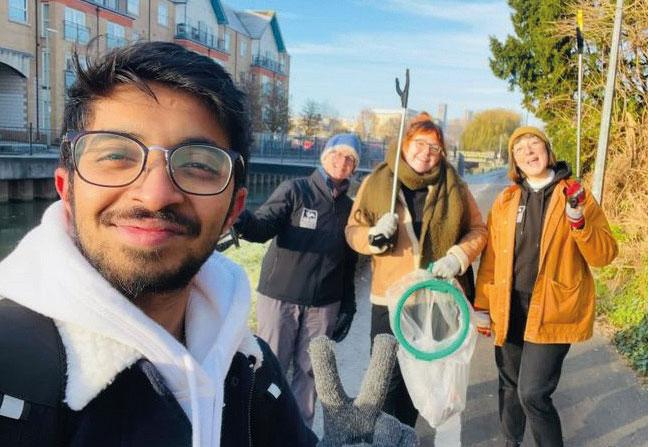
supported by Dementia Adventure. Staff have been trained to understand hidden disabilities and to use this to help put in place additional support and measures for visitors. And we supported the 60th anniversary year of World Autism Acceptance Week, focusing on acceptance and understanding.
The Trust helped inform a bid by the Biological Sciences Department at the University of Lincoln to create a new Master of Science in Nature Recovery. The first intake of students will be in 2023. Various Trust staff are now Associate Lecturers, teaching on the BSc too. The relationship with the university goes from strength to strength including through work on peat restoration, the successful completion of the two national Environmental Land Management Scheme Tests for Defra and continues to sponsor the Zoology Prize named in honour of our founder, Ted Smith.
The public engagement element of the Dynamic Dunescapes project finished at the end of the year. Our engagement work reached many thousands of people over the course of the project and a highlight this year was the composition of nine songs on the subject of dune species, including orchids, amphibians and molluscs. The whole series was animated and shown online, at visitor centres and at conferences.
Website activity decreased following the marked increase in users in the
pandemic years of 2021 and 2022 (peaking at 600,000 but dropping back to a still impressive 528,000 this year). However, social media platforms continue to increase with a 5% growth in users this year to over 26,000. Wild Lincolnshire, a book exclusive to members, was published, fifty years since the Trust’s first Nature Reserves Handbook. This has been well received by new and existing members.
The Trust hosted a student placement from University of Anglian Ruskin and agreed with The Crown Estate to host two Marine Future Interns in the coming year. And thanks to a generous legacy, funds are now available to support a salary or bursary along with training costs for individuals at the start of their career in nature conservation. It will be known as the ‘Pyatt Picker Traineeship’.
Influencing decision makers, particularly MPs, was particularly challenging during a tumultuous year in British politics. Against a background of world events it was harder to have nature’s voice heard. There were signals that government wanted to weaken the laws that protect our most important wildlife sites and row back from a planned system of environmental payments to farmers. Meetings with MPs were held online and on nature reserves to discuss the issues and supporters were encouraged to contact their local MPs direct and to sign petitions.
Workingin partnership with others, we will restore our natural ecosystems at scale and demonstrate what is possible in Lincolnshire, so that natural habitats can store and sequester carbon, help prevent flooding, reduce soil erosion, improve soil fertility, provide pollination services, allow nature’s recover at sea and support improvements to people’s physical and mental wellbeing.
The Trust has set a target of Net Zero greenhouse gas emissions by 2030. Working with the Royal Society of Wildlife Trusts (RSWT), a common standard of assessing carbon emissions has been adopted using the pre-pandemic year 2019-20 as the baseline. Our work to date has focused on direct emissions and indirect emissions from electricity consumption. Our baseline total was equivalent to a dozen UK households and so far that total has dropped from 106 tCO2e to 99 tCO2e. This reduction is significant given that activity undertaken by the Trust has increased by nearly a fifth (based on staff numbers) during this period. In addition to energy saving, opportunities for energy generation are being investigated and our first electric vehicle has been ordered to replace a diesel 4x4. We also took the opportunity during the year to move our investments to a low carbon Ethical Investment Fund.
The Conservation Team responded to 108 planning applications and screened many more for their potential impact on nature and the environment. The period also saw a significant increase in the Trust giving pre-application advice on the largest and potentially most damaging applications, called Nationally Significant Infrastructure Projects (NSIPs), and other large developments, such as the proposal for a new South Lincolnshire Reservoir. We also formed a coalition with other environmental bodies to address controversial plans for The Wash, where a developer is proposing a barrage and deep-sea port.
Such a development would significantly impact upon this internationally important and highly protected site. Plans are still at an early stage but they are being strongly opposed by a wide range of organisations.
Green finance from private sources is now required to match various government grants. The Trust has therefore been leading work with our local planning authorities to prepare and agree a consistent approach to mandatory Biodiversity Net Gain, which comes into force in November of 2023. Trading in ecosystem services is an emerging way through which we can address both the biodiversity and climate change crises. The Trust is therefore leading on a project called Green Investment in Greater Lincolnshire (GIGL), funded through the Environment Agency’s Natural Environment Investment Readiness Fund. This has engaged landowners, housing developers, utility companies and others in understanding the barriers and challenges to setting up a fair, equitable and transparent market within Greater Lincolnshire. Hundreds of individuals and businesses have inputted to the process, and HM Treasury, along with the London Stock Exchange, came to Lincolnshire to do filming on the subject with the Trust. GIGL will continue into 2023-24 when we hope to see a trading mechanism being established.
Working with Natural England, the Trust has taken on the role of delivery
agent for the District Level Licencing Scheme for great crested newts. This will see newt ponds created and monitored across our area, thus increasing habitat for wildlife. Working with delivery partners for Natural Flood Management Schemes, riparian habitat was created as part of managing flood risk. These activities create a growing need for local provenance, native flora and the Trust has continued to develop a Greater Lincolnshire Seed Bank, working with the Millennium Seed Bank Team from Kew Wakehurst.
The grazing operation at Woodhall Spa and Snipe Dales nature reserves is an excellent demonstration of sustainable farming practice. The Red Tractor accreditation inspection for beef and lamb production noted the site was “impeccable” and the set up “fantastic”.
The herd of pedigree Lincoln reds now stands at around 60 and farmers and land owners considering conservation grazing or rewilding projects have visited for advice and inspiration.
As well as the work mentioned in goal one to provide management advice to landowners, the Trust worked with a wide range of food producers, retailers, farmers and landowners to expand our training and advisory service, including delivering land manager training events with large national partners such as Dyson Farming and Marks & Spencer. The latter saw two events delivered that specifically focused on Integrated Pest Management and Beneficial Insects.
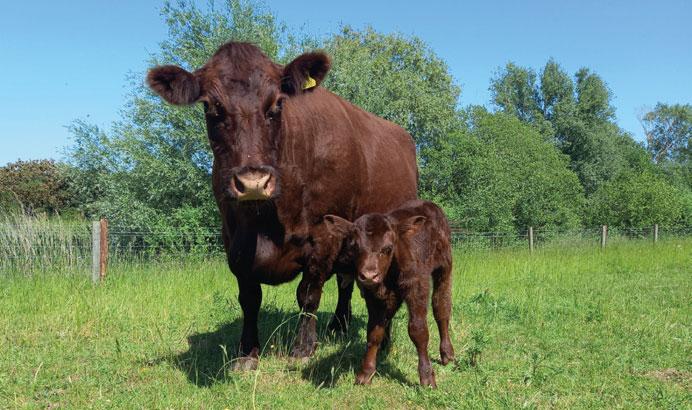 Our herd of pedigree Lincoln red cattle now stands at 60 and our cattle handling facilities are proving to be a source of inspiration to other land owners
Our herd of pedigree Lincoln red cattle now stands at 60 and our cattle handling facilities are proving to be a source of inspiration to other land owners
TheTrust’s finances remain in a relatively healthy position, with total income of £3.3 million and overall expenditure of £4.4 million. This large difference between income and expenditure can be explained to a large degree by accounting rules and timings in income and expenditure that can have a distorting effect when viewed across just one year.
In 2021/22, the Trust reported income of £5.9 million, of which £3 million was restricted income, largely associated with two significant projects. Under charity law, all of the income (even though the projects run for multiple years) is accounted for in the year in which the grant is made. Therefore, all of the income was reported in 2021/22 whilst the expenditure will be reported over the course of the years that follow. This means that in 2022/23 there was significant expenditure attributed to both projects but no income. And this in turns leads to a large difference on paper between income and expenditure. In reality this balances out over the accounting period of the project’s lifetime.
Another reason for the difference is that unrestricted income fell from £2.9m to 2.0m, primarily due to a fall in legacy income. In 2022/23, the Trust received £398k from gifts in wills (compared to an unusually high £1.1 million in 2021/22). As ever we are incredibly grateful to everyone who supports us in such a way and any legacy gift, no matter how large or small makes a huge difference to nature in Lincolnshire. If you would like to talk to us about how you can leave a gift in your will, please contact the head office in Horncastle.
Although we were not able to match the almost £3m of restricted income seen in 2021/22, the Trust did receive over £1.2m in new and continuing project funding. Membership income rose by 6.5% from £775k to £825k, reflecting an increase in members of 1.8% from 26,013 to 26,488. Trading income improved
from £50k to £80k as the retail activities moved into more normal operations after the disruption of the pandemic years. The Trust received other unrestricted income from a variety of sources, including agri-environment schemes, central and local government funding, income generated from land holdings and educational and visitor activities. It remains crucial to ensuring a sound financial footing for the Trust that we retain diverse and varied sources of income.
Unrestricted expenditure increased slightly from £2.5m to £2.6m due to a small increase in recruitment costs
and also due to general inflationary pressures. Restricted expenditure rose by 87% from £955k to £1.78m. This was as expected due to the expenditure incurred in 2022/23 relating to significant peatland work and other projects – as mentioned above.
A more comprehensive review of the financial situation can be found in the Trust’s Annual Report and Financial Statements for the year ended 31 March 2023, available on our website at lincstrust.org.uk/publications.
We could not do what we do without you, our members, volunteers, partners and supporters and we would like to extend our heartfelt thanks to everyone who has played a part this year.
LINCOLNSHIRE WILDLIFE TRUST

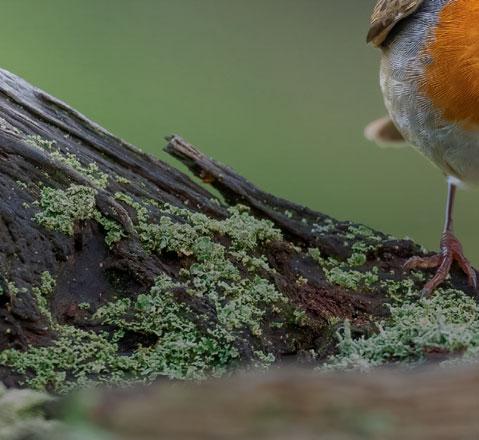

Banovallum House, Manor House Street, Horncastle, Lincolnshire LN9 5HF | 01507 526667 | info@lincstrust.co.uk
PRESIDENTS:
Geoff Trinder (President) Brian Tear (Vice President)
SENIOR STAFF:
Chief Executive and Company Secretary: Paul Learoyd
Head of Conservation: Tammy Smalley
Head of Finance: Sarah J Smith
Head of Nature Reserves: David Bromwich
Head of Public Engagement & Communications: Matthew Capper
TRUSTEES/DIRECTORS:
Anita Quigley (Chair)
Cathy Sirett (Vice Chair)
Julian Purvis (Honorary Treasurer resigned 22 October 2022)
Joanne Woolley (Honorary Treasurer appointed 22 October 2022)
Michael Burgass
| Registered charity no. 218895
Emma Buyers
Grace Corn (resigned 30 April 2023)
Kitty Hamilton
Robert Oates
Tim Sands
Mark Smith
www.lincstrust.org.uk
We are honoured to record our appreciation to the following individuals whose legacies we received or were notified of in the year ended 31 March 2023.
•Elizabeth Hill Addison
•Mary Ambrey
•Neville Geoffrey Arthurs
•Derek Barnett
•Peta Bourdillon
•Michael George Chambers
•Joy Helen Chambers
•Stanley Barker Corden
•Mrs W Dixon
•Colin Elliott
•Eva Frith
•Edward Charles Gostelow
•Margot Adelaide Hill
•Alan George Riseborough
•Sheila Mary Scarbro
•John David Sewards
•Joan Francis Smith
•Sylvia May Smith
•Jane Ward
•Evelyn Lilian Weir
DONORS, SPONSORS AND GRANT AID CORPORATE MEMBERS
•Anglian Water Services
•B A Bush & Son Limited
•Cleethorpes Builders Merchants
•Cray Valley Limited
•Creative Nature
•Crowder & Sons Ltd
•Fenland Laundries Limited
•Growin Wild Limited
•Holivans Limited
•J E Piccaver & Co
•J W Ruddock & Sons Limited
•John Kinch Group
•Lindum Group Limited
•Mortons of Horncastle Limited
•Natureland Seal Sanctuary
•Page Paper Limited
•Rowhire Limited
•SCS Technology Solutions Limited
•Sibelco UK
•Truelove Property & Construction
•Yara (UK) Limited
•Wienerberger Limited
•Woodhall Country Park
•Anglian Water Services
•Defra
•East Lindsey District Council
•Environment Agency
•Esmée Fairbairn Foundation
•European Union
•FKB Ltd
•HMRC Coronavirus Job Retention Scheme
•Lincolnshire Co-operative Society Limited
•Lincolnshire County Council
•Ministry of Defence
•National Grid
•National Lottery Heritage Fund
•Natural England
•North Kesteven District Council
•North Lincolnshire Council
•People’s Postcode Lottery
•Phillips 66
•Royal Society of Wildlife Trusts


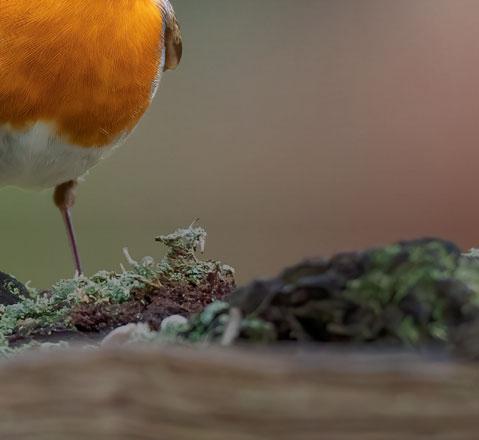
•Sea-changers
•Severn Trent Water
•Skegness Rotary
•T Balfe Construction Ltd
•Tesco
•SSE
•Vine House Farm